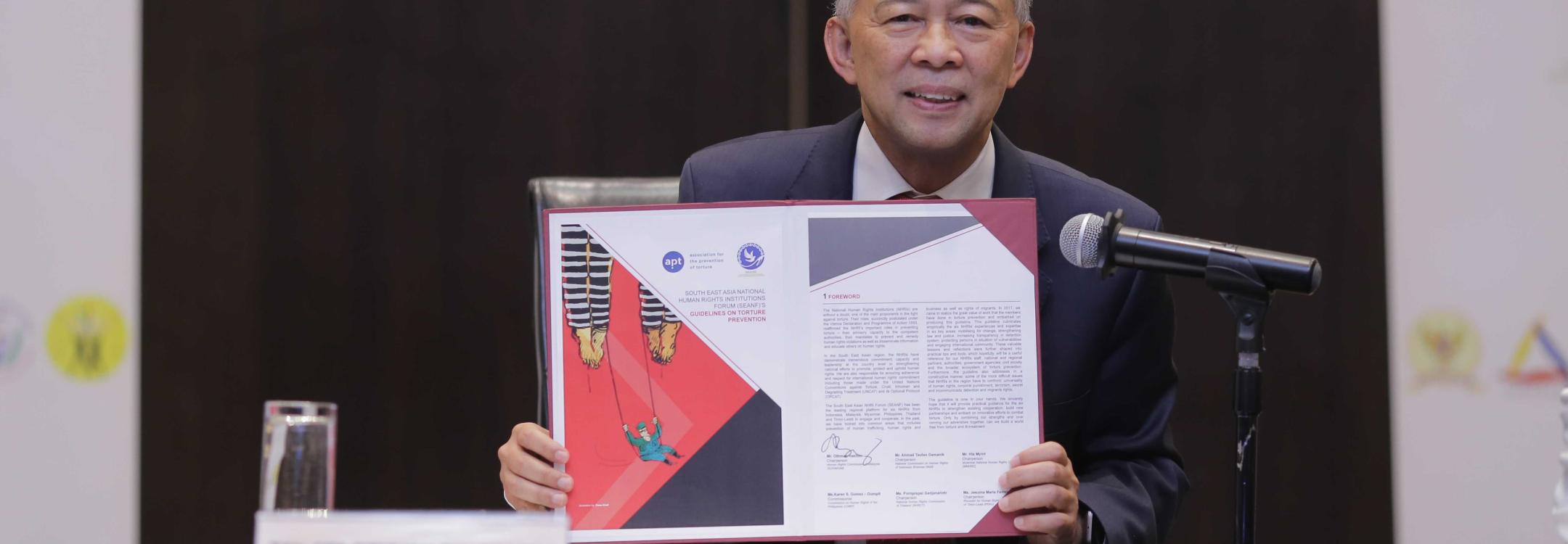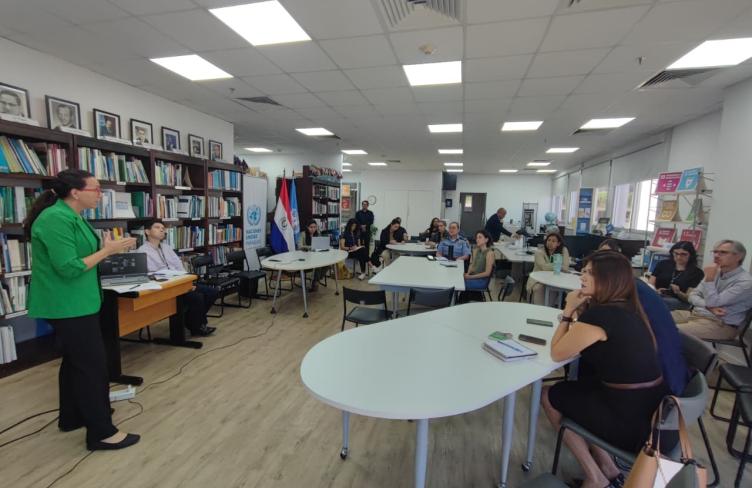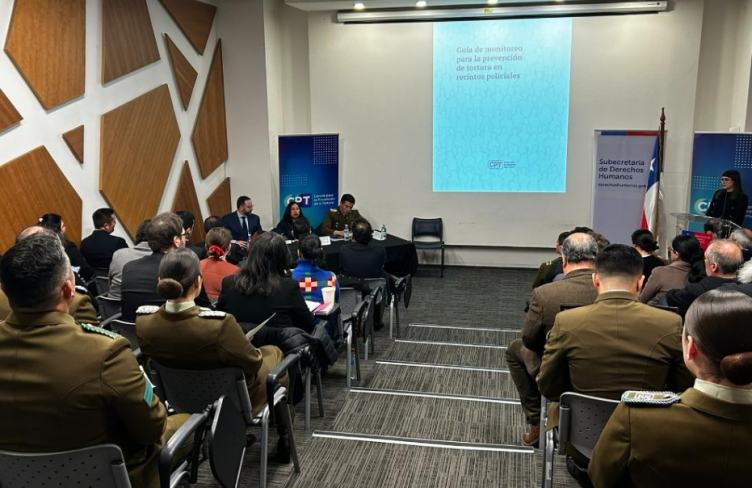
In an important first for the region, the Southeast Asian National Human Rights Institution Forum (SEANF) has adopted new guidelines on torture prevention.
Launched during the SEANF Annual Conference on 1 December 2021, the guidelines were developed in partnership with the APT and will inform the work of the six national human rights institutions (NHRI) from the region: Indonesia, Malaysia, Myanmar, the Philippines, Thailand and Timor Leste.
Chairperson of the Human Rights Commission of Malaysia and host of the SEANF Annual Conference, Tan Sri Othman Bin Hashim warmly thanked the APT for its support in developing the guidelines. He also strongly encouraged all SEANF members to integrate the guidelines into their ongoing programme of work.
Shazeera Zawawi, APT Research and Innovation Senior Adviser, told the gathering: “These guidelines are one of a kind in the region, developed through a consultative and democratic process. It is a strong reflection of SEANF members’ commitment and perseverance to continue their important work to prevent torture.” She reiterated the APT’s readiness to assist SEANF members in disseminating and implementing the guidelines.
Kieren Fitzpatrick, Director of the Asia Pacific Forum of National Human Rights Institutions, who was present at SEANF Annual Conference, congratulated the six NHRIs for the adoption of the guidelines and emphasised the APF’s continued support to work with them on their torture prevention efforts.
Drawing on their expertise, experience and reflections, the guidelines provide practical suggestions and strategies across six key areas, identified and agreed upon by SEANF members: mobilising for change; strengthening law and justice; increasing transparency in detention; protecting persons in situations of vulnerability; promoting the well-being of NHRI members and staff; and engaging with the international community for local impact.
The guidelines also offer direction and recommendations on how to tackle some of the challenging issues NHRIs face, including in relation to the rights of migrants, countering terrorism, corporal punishment, and the use of forced confessions in the criminal justice system.
Ms Zawawi noted that the guidelines – which took three years to be conceptualised and drafted – was not the only important outcome of the collaboration.
“The process to develop the guidelines is an equally important milestone,” she said. “To develop the guidelines, SEANF members sat together at the same table to debate, reflect and seek common ground, based on their own contexts, practices and challenges. This practical collaboration provided the foundations for the guidelines.”
The APT looks forward to supporting SEANF members as they begin to implement the guidelines in their respective countries, especially in their important work to build bridges with other national stakeholders, such as the police, detaining authorities and civil society organisations.


